Thomas Merton shows us what it means to become our true selves, that is becoming a saint. What does that mean for you and me?
You fashioned me, and placed Your hands on me. Your knowledge has become too wondrous for me … For You possess my heart O Lord; You took hold of me from my mother’s womb. I will give thanks to you for I am fearfully and wondrously made …
Psalm 139
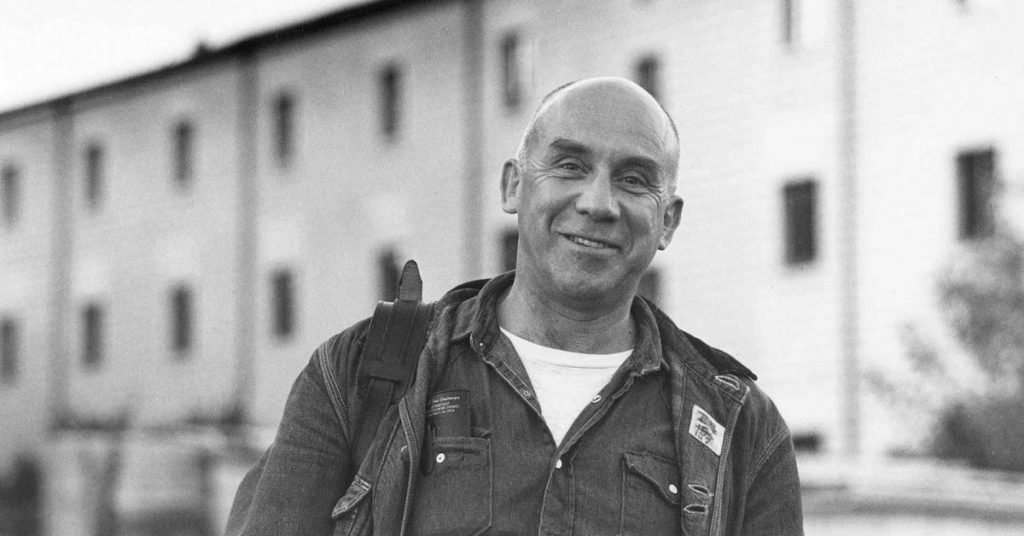
When Henri Nouwen Met Thomas Merton
Henri Nouwen told a story about the time he and some friends met Thomas Merton at the Abbey of Our Lady Gesthemeni in Kentucky. “Bring some beers,” he suggested to Nouwen, “and we’ll hang out by the river.” Nouwen, who seems so unassuming, had a large following of people and was known for hanging out with celebrities and the wealthy. I’m not sure what he was expecting from his visit with Merton, but Merton seemed to catch him off guard.
Nouwen, Merton, and the others hung out by the river and talked. “Nothing special,” Nouwen noted, “just a bunch of guys hanging out talking. And there was nothing particularly special or extraordinary about Merton either at that time,” he continued. “He was a regular guy. Didn’t say anything overly spiritual or grand or wise. … But,” Nouwen explained, “it wasn’t until about a year later that the time by the river really opened up to me, and that’s when Merton had the greatest impact on my life. I read as many of his books as I could get my hands on. I taught a course on him, and wrote a book on him. … He’s been very influential in my life, even though the time I spent with him was as if with an ordinary person.”
From what I have read about Merton, he was an extraordinary person with a deep intellect and a keen artistic sensibility. Not only did he write powerhouse books like New Seeds of Contemplation and the classic work of his The Seven Story Mountain, but he also was a painter, poet, and photographer. He corresponded with some of the great writers of his time, such as Pasternak, Henry Miller, and Jacques Maritain. And yet Nouwen goes out to meet him and stands alongside an ordinary man.
I think it’s because Merton’s focus was not to be a celebrity or people pleaser or even an artist, it was to become a saint; and a saint for Merton was synonymous with being his true self.
Let’s break this down a bit by dipping into his book New Seeds of Contemplation
What it Means to Become Oneself: A Tree is Nothing Other Than What it is
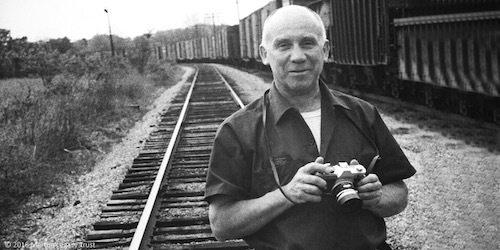
Merton’s notion of becoming oneself is becoming what one truly is. When we are truly who we are, we give glory to God.
Some simple forms of that expression that can be found in nature.
“A tree gives glory to God by being a tree. For in being what God means it to be it is obeying Him. It ‘consents’, so to speak, to His creative love. It is expressing an idea which is not distinct from the essence of God, and therefore a tree imitates God by being a tree. The more a tree is like itself the more it is like Him; if it tried to be like something else which it never was intended to be, it would be less like God and therefore it would give him less glory.”
New Seeds 29
Hence, these aspects of nature give glory to God by simply being nothing but what they are and what they have been created to be. They simply do what they have been created to do. There is a one-pointedness to the what a tree does. It does not try to be anything other than it is. And by virtue of being itself, it points to God’s glory while participating in it.
“The forms and individual characters of living and growing things, of inanimate beings, of animals and flowers and all nature, constitute their holiness in the sight of God. … The special clumsy beauty of this particular colt on this April day in this field … is holiness consecrated to God by His own creative wisdom and it declares the glory of God.”
New Seeds 30-31
By being nothing but what they are, even these aspects of the natural world, for Merton, are saints. Another way to describe them is they are icons, i.e. pointing to God while participating in His energies.
“The lakes hidden among the hills are saints, and the sea too is a saint who praises God without interruption in her majestic dance. The great gashed, half-naked mountain is another of God’s saints. There is no other like him.”
New Seeds 30-31
Do you look at a mountainside and see a saint? How about a bird that lands on your back porch, or a cow you pass by along the highway? How about in the gaze of your dog or cat?
The Key Distinction Between a Tree and Me …
But what about you and what about me? Merton asks …
The key distinction between myself and a tree is God created me with freedom to become myself or not to become myself. “We can be ourselves or not, as we please”(NS 31). A tree simply is–its vocation is simply to be itself. But for us as humans, it’s qualitatively different …
“Our vocation is not simply to be, but to work together with God in the creation of our own life, our own identity, our own destiny. We are free beings and sons of God. This means to say we should not passively exist, but actively participate in His creative freedom, in our own lives, and in the lives of others, by choosing the truth. To put it better we are even called to share with God the work of creating the truth of our identity.”
New Seeds 32
Masks are not Mandatory …

The “truth of our identity” begins to touch on what Sartre called “bad faith,” Heidegger called “inauthenticity” and “das Man,” Kierkegaard “the despair of not wanting to be yourself,” and what E.E.Cummings called “gangs.” That is, what makes us human is precisely this choice, again back to Kierkegaard, of being able to choose or not choose to be oneself.
“To say I was born in sin is to say I came into the world with a false self. I was born in a mask. I came into existence under a sign of contradiction, being someone that I was never intended to be and therefore a denial of what I am supposed to be. And thus I came into existence and nonexistence at the same time because from the very start I was something that I was not.”
New Seeds 34
The Absurdity of the False Self and the Life of Sin

Merton was heavy into Camus the latter of whom wrote a lot about the world as a place of absurdity. How Camus described absurdity is precisely how a Christian would describe ‘fallenness’. And what is more absurd in our world than the masks all of us wear at one time or another–perhaps all the time …
That nausea you feel at a party surrounded by the din of idle chatter.
The estrangement you feel at a workplace where collectivism has taken over and devoured any sense of individuality or expression–and you realize it’s happened to you as well.
The artwork you attempt to create only to realize you’re just trying to appeal to market-driven forces or a particular trend or a particular kind of sound.
It’s a fallen world of masks because we learn about our different masks by developing as individuals in a world that is made up of masks. And behind those masks, another generation of masks, and behind those masks another generation, and so on. The fall took place because Adam and Eve wished to be something other than they were when they already were that thing, namely in the image of God. The foliage they put on to hide their nakedness was the first mask.
Wrapping the World Around Myself
This next portion is one of my favourite passages of Merton. It hits between the eyes, but takes time for the truth to fully unfold in one’s heart …
“Everyone of us is shadowed by an illusory person: a false self. This is the man that I want myself to be but who cannot exist because God does not know anything about him. … My false and my private self is the one who wants to exist outside of the reach of God’s will and God’s love–outside of reality and outside of life. And such a self cannot help but be an illusion.”
New Seeds 34
And again …
“All sin starts from the assumption that my false self, the self that exists only in my egocentric desires, is the fundamental reality of life to which everything else in the universe is ordered. Thus I use up my life in the desire for pleasures and the thirst for experiences, for power, for honour knowledge and love, to clothe this false self and construct its nothingness into something objectively real …
“And I wind experiences around myself and cover myself with pleasures and glory like bandages in order to make myself perceptible to myself and to the world, as if I were an invisible body that could only become visible when something visible covered its surfaces.”
New Seeds 35
The False Self as the Thing You Think You’re Best At
What is that false self for you?
What I have noticed is the false self could be the ‘self’ you believe to be the most ‘authentic’ …
The writer
The poet
The jazz or blues man
The engineer
The Stanford grad
The Harvard man
The entrepreneur
The innovator …
What’s so bad is the things we believe to be the best at tend to become the biggest masks. Like Fr Jacques Philippe says, we should identify neither with our talents nor with our weaknesses.
And we can tell what our false self is when we react to people or situations that strike at or assert themselves against that mask.
Falling prey to our false selves, living out the masks we wear, contributing and fuelling the absurdity of existence, or as Merton put it “a life devoted to the cult of this shadow of my false self” is what is called a life of sin. For “all sin starts from the assumption that my false self, the self that exists only in my own egocentric desires, is the fundamental reality of life to which everything else in the universe is ordered”(35).
The Mirror of the Glass Menagerie
Think about it …
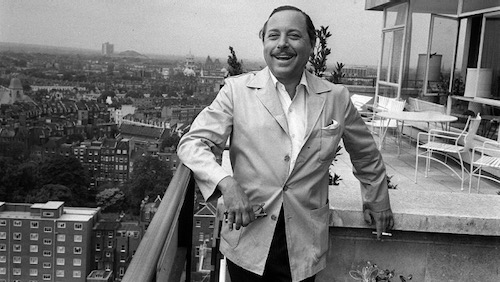
Zoom out and look at many of the lives of famous writers or artists or musicians or entrepreneurs–in most cases a great deal of hedonism, ego, and brokenness. Why? Because their lives were all about preserving the identity that made them famous.
It’s like Tennessee Williams and his little essay The Catastrophe of Success: he had grown too big, too successful, too famous, and even, he lamented, too fat for his suit! In the success of the Glass Menagerie he had lost the edge, the grit, the determination … He had fallen into sin.
Now zoom in to your own life: when did you get into the most trouble?
When you were too big for those around you?
When your ego was on autopilot?
Reminds me of what Peter Gabriel says in the song Big Time about his bed being a mountain range with a big fat pillow for his big fat head …
When Merton became a monk, he was concerned about the writer that was on his shoulder. For there was something else he was after–to become a saint. I believe it was his friend Robert Lax who first gave him this idea–that the purpose of his life was, more so than becoming a writer or a monk or what-have-you, to become a saint. And that became for Merton the purpose of his life. He wrote a great deal and corresponded with some of the heaviest poets and artists and intellectuals of his day; but he knew that the purpose was not to become the great writer, but rather to become a saint.
Becoming Myself by Becoming a Saint
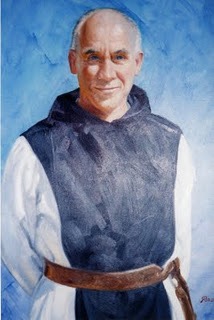
But how does one become a saint?
Merton answers that question so beautifully …
“For me to be a saint means to be myself. Therefore the problem of sanctity and salvation is in fact the problem of finding out who I am and of discovering my true self …
“The secret of my identity is hidden in the love and mercy of God. … Ultimately the only way I can be myself is to become identified with Him in Whom is hidden the reason and fulfillment of my existence.”
New Seeds 35-36
And here’s the clincher …
“Therefore there is only one problem on which all my existence, my peace and my happiness depend: to discover myself in discovering God. If I find Him I will find myself and if I find my true self I will find Him.”
New Seeds 36
Loving Union with God
Christ tells us that He stands at the door and knocks. If we open the door, then He will come in and eat with us and we will eat with him. That eucharistic image (icon) Christ presents to us in the Gospel is the process through which we become our true selves. We stand before Him as we are–broken, bankrupt, made up of a multitude of masks–and He offers His Love, His Grace, His Body and Blood to us for our healing and to be in union with Him.
Perhaps we can sum up Merton’s vision of becoming oneself like this …

The purpose of our lives is to become our true selves.
Our true selves are found by seeking God.
When we seek God He opens us to a loving union with Him.
When we are in loving union with Him, we become our true selves.
And therefore we become saints.
That’s the purpose.
That’s the focus.
That’s the direction of our lives–
all of us.
Not to be writers or Stanford grads or Silicon Valley gurus;
Not to be artists (this one is one of the most deadly masks), or evangelists, preachers or priests;
Not to be the teacher or orator or philharmonic conductor …
But simply to become who we truly are,
To become our true selves,
By growing in loving union with God,
and love for every human being,
and all of creation.
And when we are living through that IDENTITY, all these other things will be added unto us.
But they are directed in the right way, towards the right mark, and for the right purpose.
And we can’t do it by ourselves … For
“The only One Who can teach me to find God is God,
Himself, Alone.”
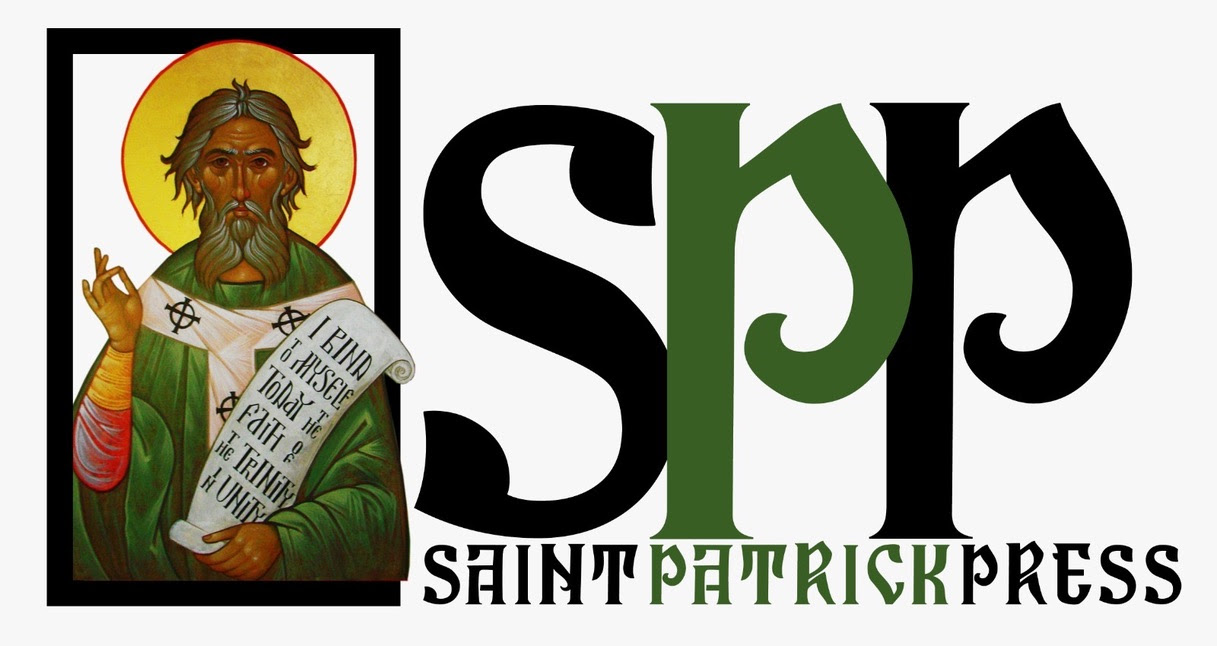
4 Responses
Wonderful reflection, thank you for sharing. These passages of Merton are some of my favourites.
Thank you for your comment Andrew! Yes, these are some of my favourite passages also. His New Seeds is such a treasure isn’t it … I can’t help but read portions of this book as a (tacit) response to Heidegger, Sartre, Camus, and others. One for instance comes to a deeper understanding, or more complete understanding, of Sartre’s notion of ‘bad faith’ through Merton’s set of lenses. Much to talk about there …
God bless …
I like the write-up, the point in which the site is actually a tiny little bit unique tends to make it so useful, I actually get fed up of viewing the exact outdated monotonous recycled stuff just about all of the time.
Thanks for your comment–it means a lot. I’m delighted you liked the write up. And it’s a joy to “a tiny little bit unique.” 🙂